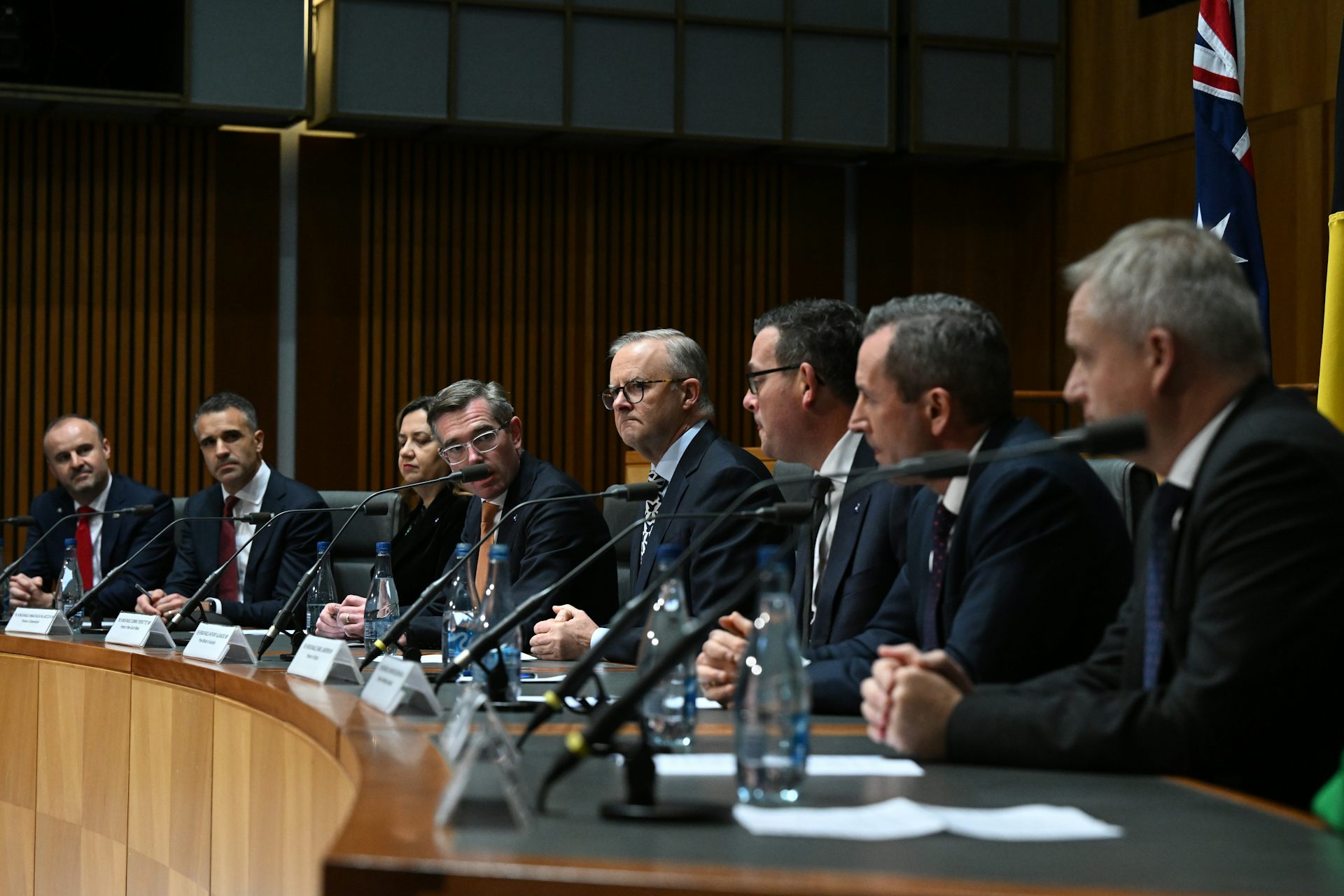FederThe national cabinet has agreed to extend a 50-50 split of health funding,, but no outcome was reached on calls for an east coast gas reservation policy amid an energy crisis that has set power prices soaring.
The health announcement fell short of calls from the Australian Medical Association for the federal government to extend the support until 2025 and commit to a long-term 50-50 split on general hospital funding.
“Three months extra Covid funding will not fix a decade of hospital underfunding,” the AMA president, Dr. Omar Khorshid, said.
State and territory leaders came to Canberra for prime minister Anthony Albanese’s first national cabinet meeting on Friday, with the energy crisis, health funding, and workforce issues high on the agenda. Before the meeting, the South Australian premier, Peter Malinauskas, said the east coast should look to Western Australia’s gas reservation policy as a potential solution to the energy crisis currently gripping the nation.
“[WA] have a domestic gas reservation policy, and the skies aren’t falling in,” Malinauskas said. “Arguably, they’re in a better position than the rest of the country.”
On Friday, the New South Wales energy minister, Matt Kean, requested emergency powers from his state to order coal producers to increase supply to electricity generators.
But the meeting ended with no firm announcement on changes or actions to be taken to further shore up the energy problem, with an official communique from the conference only saying that there would be “ongoing discussions between energy ministers” and an agreement to “continue working together to protect and improve outcomes for Australian consumers”.
The Victorian premier, Daniel Andrews, said after the meeting that his state was ruling nothing out regarding gas exploration but remained committed to a ban on fracking. The NSW premier, Dominic Perrottet, said his government was “completely committed” to the Narrabri gas project, under which he said supplier Santos had agreed to a reservation policy as a “key component”.
Albanese confirmed the federal government would inject an extra $760m to extend the National Partnership on Covid-19 Response for three months, taking it to the end of December. The plan will help cover Covid-related costs incurred by state hospitals and health systems.

He said the extension was “a recognition that there are currently about 3,000 people in hospital due to Covid”.
“[The pandemic] isn’t over yet,” Albanese said.
The AMA had previously called for the Covid funding to be extended to 2025 and for the federal government to commit to a long-term 50-50 split in health funding.
The 50-50 funding split was backed by premiers but did not gain support from the federal government. Federal cabinet stopped short of backing longstanding calls from state premiers and the AMA to increase ongoing hospital funding.
“I’ve made very clear that the government has inherited $1tn of debt,” Albanese said. “The idea that we are in a position to continue to offer more funding across a range of necessary issues, there are physical pressures on the commonwealth which people understand.”
Khorshid said the Covid funding should have been extended further. He welcomed a review into health spending announced by Albanese but said he hoped its outcome would recommend long-term funding reform, without which he claimed hospital issues would worsen and lead to avoidable deaths.
Sign up to receive the top stories from Guardian Australia every morning
“The national partnership funding is critical to dealing with Covid demand now, but this short extension will not see us through the hospital crisis, nor Covid, nor the additional pent-up demand from two years of lockdowns,” Khorshid said.
“The review and the negotiations need not take too long. We know what is required – making 50-50 funding permanent while also scrapping the growth cap on funding.”
Perrottet said the Covid funding was “a great start” and “incredibly welcome” but indicated he would continue pushing for more substantial health reform.
“This has been in the too-hard basket for too long,” he said. “We certainly got a sense today from the prime minister that we’d return to a national cabinet before the budget.”
Federal cabinet also agreed to find “practical improvements” to GPs and hospitals, including pathways to free up hospital beds occupied by aged care residents and NDIS participants, and find those people more appropriate accommodation.
A separate meeting of federal and state disability ministers on Friday, chaired by the NDIS minister, Bill Shorten, said about 1,100 NDIS participants are currently in hospital waiting for appropriate accommodation.
At the press conference on Friday, Albanese revealed that despite Labor committing to putting the local government on the federal cabinet, the third tier of government would be represented at just one meeting a year.
He said the local government would come to “a future meeting of the national cabinet and the treasury body once a year so all levels of government can be involveThe federaleral cabinet will meet at least four times a year.
Under Scott Morrison local council was invited once a year to the national federation reform council, which included the federal cabinet and the committee on federal financial relations as members.











